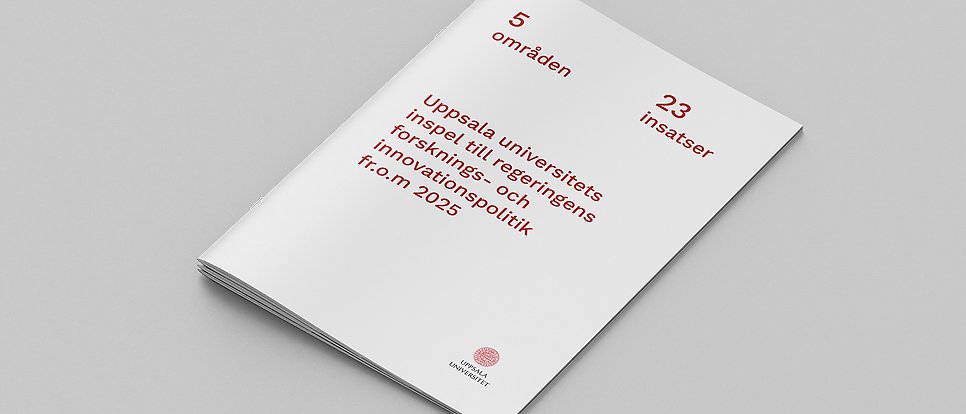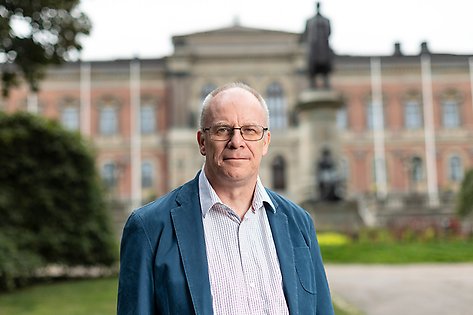Academic freedom highlighted in input to government

Uppsala University has now submitted its views to the government in preparation for the forthcoming research and innovation policy bill.
Academic freedom, research funding for outstanding research and good conditions for research infrastructure at national level are three points highlighted in Uppsala University’s input to the research bill, which was submitted to the government today.

Anders Hagfeldt, Vice-Chancellor at Uppsala University. Photo: Mikael Wallerstedt
Uppsala University has now submitted its views to the government in preparation for the forthcoming research and innovation policy bill. The University is proposing changes in the areas of academic freedom, research funding, research infrastructure, education, collaboration and innovation. A selection of Uppsala University’s priority research areas is also presented.
“Through our input, we want to highlight the importance of academic freedom and scientific integrity for a democratic society. Our mission is to safeguard the free pursuit of knowledge in education and research while protecting the diversity and high quality of science. If the government heeds our proposals, it will create better conditions for universities to take responsibility and contribute to solving major societal challenges,” comments Anders Hagfeldt, Vice-Chancellor of Uppsala University.
The following is a summary of Uppsala University’s proposals to the government:
Strengthen academic freedom at all levels. The University proposes that the autonomy (independence) of higher education institutions be increased, that freedom of education be protected in the constitution and that micromanagement be reduced. Another proposal is for labour immigration regulations to take the specific conditions of the higher education sector into account.
Steer research funding towards outstanding research. Here, the University is proposing that direct government funding be distributed on the basis of excellence and kept free of co-financing, that the Swedish Research Council’s free project grants be protected and that new investments be made in strategic areas of research. At EU level, it is proposed that outstanding basic research be prioritised in the EU’s next framework programme and that Sweden strengthen its commitment to the transition to open science.
Create good conditions for research infrastructures of national interest. The University is urging development of a comprehensive national strategy and a long-term funding model for research infrastructure. Two other proposals are to coordinate national digital research infrastructure at just one public authority and to secure funding for the digitalisation of Swedish print media.
Provide the conditions for education of the highest quality and relevance. The University is proposing that the allowance per student in all areas of education be raised to ensure the quality of education. They also suggest expanding higher education with permanent places.
Remove barriers to collaboration and innovation. Among other things, it is proposed that ULF (practice-based research in collaboration) be made permanent and that forms of collaboration should move towards simpler structures and less administration.
Annica Hulth
